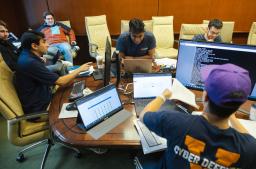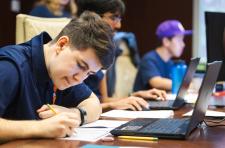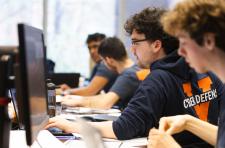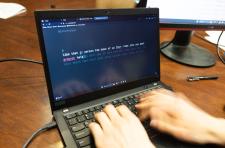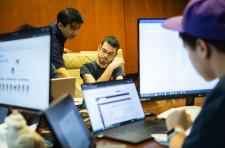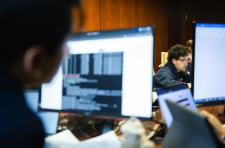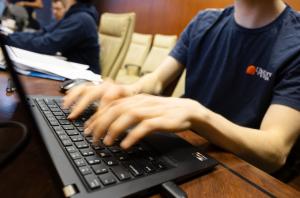
A relaxed but fiercely focused University of Virginia cyber defense squad advanced to the Mid-Atlantic Collegiate Cyber Defense Competition on Saturday, leading all other teams in scoring in this qualifying round for the second consecutive year.
The team, drawn from members of UVA’s Computer and Network Security Club, will now compete in person in the regional round in March for a chance to advance to the national championship in April.
With a first-place or wildcard win at regionals, it would be the Hoos’ fourth consecutive trip to nationals and the sixth since they began competing in 2018. They were national champions in 2018, 2019 and 2020.
Before getting underway, team captain Shreyas Mayya addressed the group in a Rice Hall conference room, where they worked remotely.
“We’ve spent a lot of time preparing what we need to do for this competition,” Mayya said. “Just stick to the playbook and we’ll deal with situations as they arise.”
“Second,” he said, “communicate, communicate, communicate.”
And they did, clearly articulating what actions they were taking and how. With multiple conversations going at once, they often repeated back instructions to ensure all parties to the exchange were on the same page.
